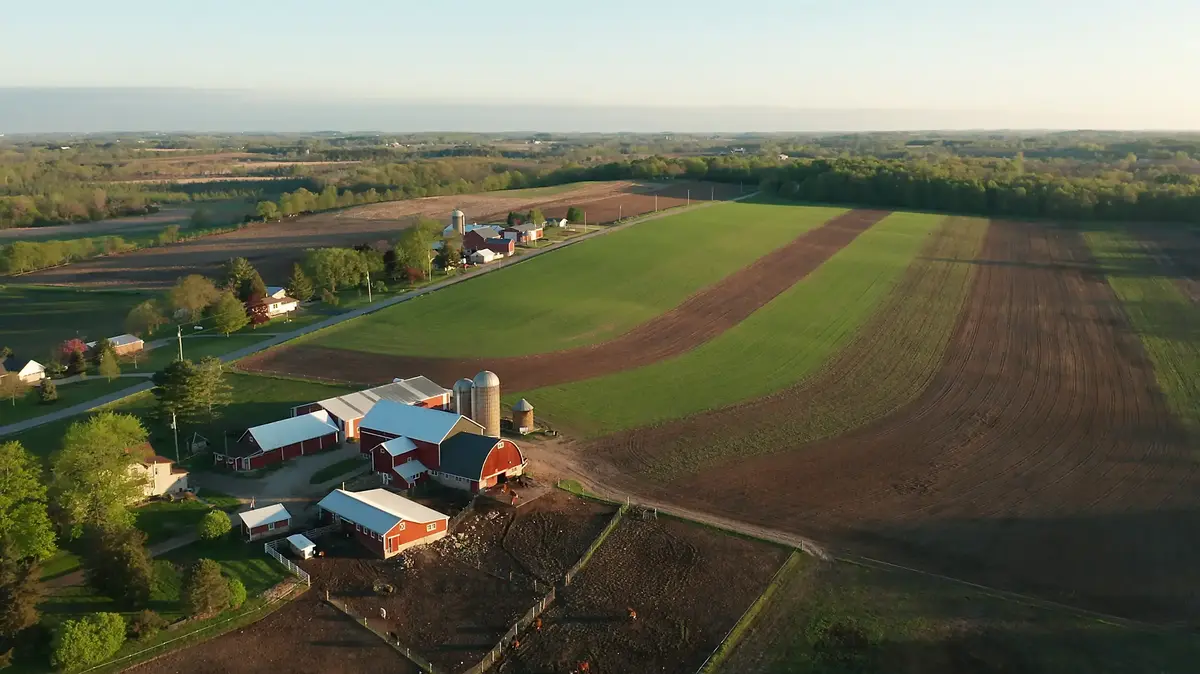An estate is a unique asset in several aspects (Photo: ShutterStock)
Although an estate is a real estate asset for all intents and purposes - such as apartments, land houses, offices or warehouses, an estate is a unique asset in several aspects and therefore should also be treated differently, especially in the legal treatment of the property.
Why? Well, Nachala is a real estate asset with a thick historical basis: the State of Israel was founded by pioneers, by agriculture and working the land. Thus, in the past, the very possibility of growing on the land, an agricultural crop that could support the entire family, was of great importance. Each family had an inheritance and the land was supposed to support the family by cultivating the land. This historical designation led to various restrictions regarding the use of the estate. These restrictions still exist today, even though the way of life has changed since then and crops are no longer a top priority for most families with estates in Israel.
Differences between an estate and other real estate assets One of the differences between an estate and other
real estate assets is the matter of inheritance. Inheritance of an estate is very different from the inheritance of other real estate assets. For example, the estate cannot be bequeathed to three children but only to one child; It is also not possible to divide the rights in the estate among several people, just as rights in an apartment can be divided. Moreover, there are also many restrictions on the transfer of rights in the estate.
One of the familiar mechanisms is the "continuing son". When a family wants to transfer the rights to the inheritance, it can choose, during the parents' lifetime, who will be the successor son. In practice, today fewer and fewer families are engaged in agriculture, as are the natural successor sons. Besides, the state is now less supportive of agriculture than in the past.
Thus, the landlords are left with quite a few restrictions, when the purpose for which they were created no longer really exists. If this is not enough, to all these restrictions must be added the emotional aspect. The estate has heritage, memories and family history. These feelings for the place, the land, along with the restrictions, can cause family conflicts.
From right to left – Adv. Gali Ritov Porat and Adv. Lidor Kira (Photo: PR)
Changes for the better in rights
So what do we do? Adv. Gali Ritov-Porat of Kira-Ritov-Porat Law Office, which specializes in managing real estate transactions, explains that the problems mentioned above are one of the reasons underlying Resolution 979 at the Israel Land Authority (ILA), which has undergone various incarnations and numbers and deals with the so-called "capitalized estate."
"The purpose of the decision is, among other things, to deal with the legal status of the rights of landlords. Until the decision, the rights were only contractual rights vis-à-vis the ILA. Today this can be changed. In other words, in a situation where a person purchases an apartment, the rights he acquires are proprietary rights, while the right to the estate is a contractual right and the landowner has the status of an authority – a right that is less than a proprietary right," explains Adv. Ritov-Porat.
"The decision, therefore, allows, inter alia, to upgrade the status of rights from an authority to a lease right for generations, which is a proprietary right. In practice, the decision introduced exploitation possibilities into the economy and released some of the restrictions of the past. It allowed a little more leeway. For example, splitting lots, renting or allowing more than one child to live on the estate."
Adv. Ritov-Porat notes that "in order to enjoy the benefits in the decision, there are threshold conditions that must be met, such as regulation of deviating uses or building irregularities in the estate." After meeting the threshold conditions, the landowner can choose one of the following two tracks: Entrance fee track – paying an entrance fee at a rate of 3.75% of the value of the residential plot and receiving three main benefits:
cancellation of the intergenerational continuity, purchase of a basket of rights of 375 square meters, which can be divided between the residential houses in the estate, and the possibility of splitting a plot from an estate for a fee of 33% of the value of the split lot.
"This is revolutionary," emphasizes Adv. Ritov-Porat, "because it allows the landowner to divide it differently among his children. In practice, this is the possibility of creating two different and separate assets instead of one. Thus, the landlord is not obligated to bequeath the entire inheritance to one child, thus avoiding conflicts. It's not yet an equal distribution, but this situation is certainly preferable."
Purchase fee track – you pay a fee of 33% of the entire residential plot in the estate, and in return receive a number of benefits, the most significant of which are the purchase of all existing and future building rights; The possibility of renting buildings in the estate to third parties and the possibility of splitting plots from the estate at no additional cost.
"The meaning in practice," says Adv. Ritov-Porat, "is that you can do almost anything you want in the residential plot, subject to the possibilities that the zoning plan allows. This route is significantly more expensive and therefore less attractive, but its advantage is in obtaining future rights without paying for them. In other words, you can split lots without paying extra for it."
It is important, of course, to note that VAT must be added to these payments and payment of purchase tax and betterment levy must be taken into account.
It is very important to prepare in advance how and how to divide the estate (Photo: ShutterStock)
Management and distribution of land customized to each family
According to Adv. Ritov-Porat, this is undoubtedly a significant change in the management and division of the estate, with options that did not exist before. "The inheritance of the inheritance is no longer exclusive to only one son, it is possible to bequeath to more daughters and sons and divide the inheritance. The options to choose from are much wider."
Adv. Ritov-Porat notes, from her familiarity with the field, that "each and every economy has its own story, each family has its own conditions, different circumstances and different restrictions. Therefore, this decision makes it possible to tailor an appropriate solution for each and every family, to tailor a suit for it accordingly."
According to her, it is very important to prepare in advance how and how to divide the estate. In this way, it is possible to prevent arguments and legal disputes that may arise in the future.
Adv. Ritov-Porat concludes: "When you do this during the parents' lives, when they are the ones who make the decisions and steer the ship, it is possible to create a family arrangement that will be comfortable and acceptable to everyone and save problems and quarrels, which as we know also involve quite a bit of money. The decision allows professionals to help families avoid problems that may arise in the future."
Kira Ritov-Porat Law Office and Notary deals with and specializes in all types of real estate transactions and provides personal attention and close accompaniment to its clients. To contact us and for more details, contact ushereor by phone: 073-3161530
To the firm's
website To the firm's
Facebook
page Article courtesy of Zap Legal
The information presented in the article does not constitute legal advice or a substitute for it and does not constitute a recommendation to take proceedings or refrain from proceedings. Anyone who relies on the information appearing in the article does so at his own risk
In association with Zap Legal
- theorem
- More topics
Tags
- Farm




/cloudfront-eu-central-1.images.arcpublishing.com/prisa/SA7CO3YW3FGXPGCQYNPMCGDMZM.jpg)




